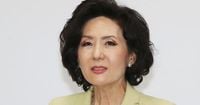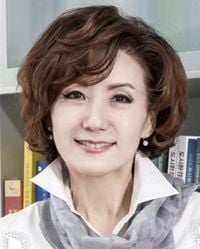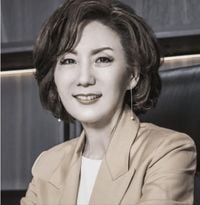On June 29, 2025, President Lee Jae-myung appointed Lee Jin-sook, the former president of Chungnam National University (CNU), as the new Minister of Education. This appointment marks a significant milestone, as Lee Jin-sook is the first female president among Korea's flagship national universities, and her selection signals the Lee administration's commitment to advancing educational reform and regional university development.
Lee Jin-sook, born in 1960 in Daejeon, has a distinguished academic and administrative career deeply rooted in her alma mater, Chungnam National University. She graduated from CNU's Architectural Engineering department, earned a master's degree in Architectural Planning from the same institution, and completed her Ph.D. in Architectural Environment Planning at Japan's Tokyo Institute of Technology. Since 1989, she has served as a professor in the Architectural Engineering department at CNU, holding various leadership roles including Head of the Architectural Department, Dean of the College of Engineering, Dean of the Graduate School of Industry, Chairperson of the Women Professors' Council, and Head of the Office of International Affairs.
Her leadership capabilities were further recognized when she was elected the 19th president of Chungnam National University in 2020, becoming the first woman to hold this position in CNU's 68-year history. She completed her term in early 2024. During her presidency, Lee focused on strengthening the competitiveness of regional universities and promoting balanced development, initiatives that included securing CNU’s designation as a semiconductor specialization university, establishing a foundation for an ultra-wide regional campus, and pushing for the establishment of an international college.
Lee's influence extends beyond her university. In 2023, she served as Chairperson of the National University Presidents' Council, representing over 40 national and public universities, and was elected Vice Chairperson of the Korean Council for University Education. She also chaired the Korea Environmental Lighting Association and the Korean Society of Color Studies, while contributing as a member of various government advisory committees, including the Presidential Advisory Council on Science and Technology, the National Architecture Policy Committee, and the Central Construction Technology Deliberation Committee of the Ministry of Land, Infrastructure and Transport.
Her appointment as Minister of Education is widely interpreted as a strategic move to push forward the Lee administration’s flagship education reform policy: the “Create 10 Seoul National Universities” initiative. This ambitious plan aims to elevate nine regional flagship national universities to the level of Seoul National University, transforming them into research powerhouses and regional innovation hubs. The policy seeks to reverse the trend of population concentration in the capital area by evenly distributing educational infrastructure nationwide, thereby fostering balanced regional development and nurturing future talent locally.
During the 2024 presidential election, Lee Jin-sook chaired the Democratic Party’s “Create 10 Seoul National Universities” promotion committee. She emphasized to reporters that “one Seoul National University can no longer be responsible for the entire nation,” describing the initiative as “a virtuous cycle and shared system designed for overall regional universities to grow together, not just the expansion of a single university.” She further explained that “to simultaneously solve regional decline and capital area concentration, the state must now consider education infrastructure as public assets and distribute them evenly across the country,” highlighting the reform as a foundational step for the Lee government’s education agenda.
Lee’s deep understanding of the challenges faced by non-capital area universities, gained from over three decades of service at a regional national university, has earned her respect within the education community. Her leadership style has been described as strong, straightforward, and decisive, with colleagues noting that despite being a woman in a traditionally male-dominated field, she led with a commanding presence and clear vision.
Beyond academia, Lee has maintained a politically neutral profile, which has been noted as a strength. Under the previous Yoon Suk-yeol administration, she co-chaired the National Industry-University Cooperation Committee under the Prime Minister’s Office. Now, as a member of the Presidential Advisory Council on Science and Technology, she continues to advise on national policy, particularly in science and education.
At the time of her nomination, Lee stated her commitment to addressing the ongoing challenges in South Korea's education system. She pledged to “alleviate the reality of population concentration in the capital area for university admissions and prepare a foundation for realizing creative and holistic education suitable for the era of artificial intelligence (AI) while alleviating admission competition.” This reflects the pressing need to normalize operations in medical school curricula, address controversies surrounding the introduction of AI digital textbooks, and advance the “Create 10 Seoul National Universities” initiative.
The Presidential Office highlighted Lee’s rare combination of academic expertise and proven leadership, noting her engineering background and experience as a university president make her uniquely qualified to lead the Ministry of Education. An official from the Ministry of Education remarked, “As a female scholar from an engineering background who became a university president, it is rare, especially at a national university, and her leadership has been proven.” Another university president praised her tenure as chairperson of the National University Presidents’ Council, describing her as “a strong leader despite being a woman, straightforward and decisive.”
Lee’s appointment also marks the return of a female Minister of Education after a three-year gap since the resignation of former Minister Park Soon-ae. Her nomination was welcomed by many as a symbol of breaking the “glass ceiling” in higher education leadership, being the first female president of a flagship national university, the first female president of Chungnam National University, and the first female dean of its College of Engineering.
On the same day, President Lee Jae-myung also appointed other key cabinet members, including Jeong Eun-kyeong as Minister of Health and Welfare, Yoon Ho-jung as Minister of Interior and Safety, Koo Yun-cheol as Minister of Economy and Finance, Jeong Seong-ho as Minister of Justice, and Kim Jeong-kwan as Minister of Trade, Industry and Energy. Additionally, Ryu Je-myung, an experienced official in ICT and digital policy, was appointed as the 2nd Vice Minister of Science and ICT, reinforcing the government’s focus on science and technology.
Lee Jin-sook’s rise to the helm of the Ministry of Education comes at a critical juncture for South Korea’s education system. With her extensive experience in academia, government advisory roles, and political engagement, she is poised to lead the country’s efforts to decentralize education, nurture local talent, and integrate innovative technologies into learning. Her leadership will be essential in navigating the complex challenges ahead, from balancing regional development to advancing AI-driven education reforms.



